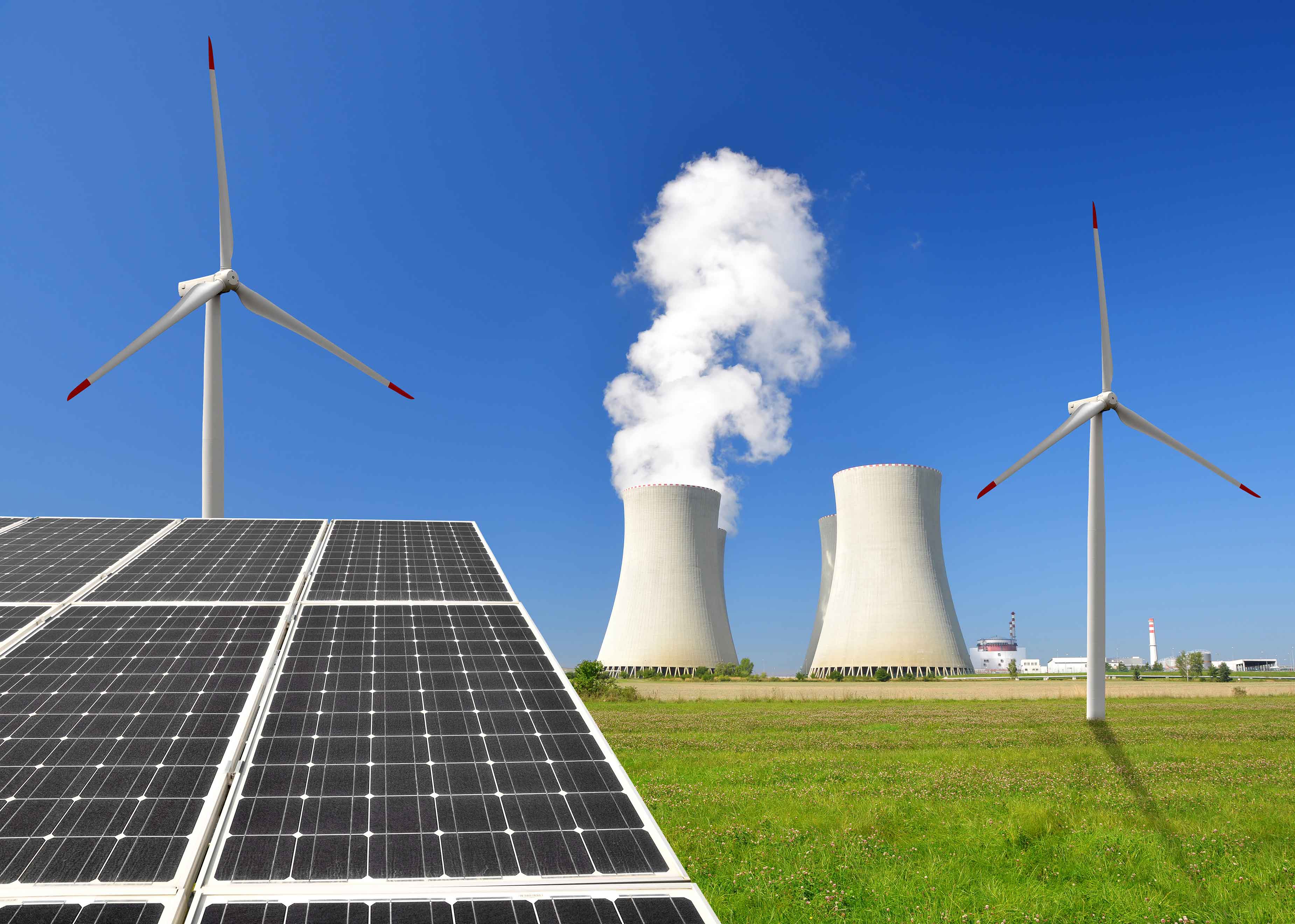
Abstract
Nuclear energy has an important role to play in combating climate change, but first the United States must address the safety and security concerns that come along with it.
Keywords
Nuclear energy, Paris Agreement, US nuclear policy
The threat of catastrophic climate change now stands with nuclear annihilation as one of the great existential threats that humans have brought upon themselves. There are many things we can and should do to tackle the climate threat, beginning with putting a price on carbon emissions, promoting market mechanisms that reward efficiency, leveling the playing field for all lower-carbon energy sources, and leveraging the 2015 Paris Agreement on climate change, with its national commitments to rein in carbon emissions, into more effective international action. Expanded use of nuclear energy can make a major contribution to these efforts as well, but the key question is whether we can preserve or even extend the environmental benefits from nuclear energy without increasing the risks that dangerous technology or materials will fall into the hands of terrorists or hostile nations. Better yet, can we enjoy those benefits while reducing nuclear threats through smarter policies and practices? We can, but it will not be easy. It requires well-crafted laws and policies, implemented with an ethos of constant vigilance, and with safety and security goals woven into the fabric of nuclear programs. Specifically, the United States could lead the way in implementing an international fuel-services initiative that would solve many problems posed by nuclear energy—but it must first overcome its own penchant for self-defeating diplomacy with other nations.
A messy situation
Before any of this can happen, however, we must first understand the nature of the risks posed by nuclear energy, which differ from those posed by nuclear weapons. In some ways, due to our experience, it is even easier to understand the appropriate responses to nuclear-armed adversaries—diplomacy, deterrence, even the use of force—and to other nuclear-armed states—stringent security measures protecting dangerous materials and technology—than to understand how to approach the threats posed by nuclear power. So how can we design and implement policies that will reduce the risk of nuclear terror even as the use of nuclear power increases?
Answering this question is complicated by a lack of clarity over the motives of the governments in countries pursuing the development of nuclear energy. Since India's detonation of a so-called "peaceful nuclear device" in 1974, one question has always loomed: whether governments with nuclear programs are simply seeking energy solutions for their citizens or pursuing a weapons option.
Many countries have doggedly pursued nuclear weapons capabilities with programs explicitly devoted to that purpose, while others have pursued civilian nuclear power without hidden military intent. But there have been cases—notably Iran—where there is a well-founded fear that, absent sustained international pressure, an ostensibly civilian nuclear program could mask a military program. Discerning the true intent behind a program can be difficult, and judgments about other countries' programs are fraught with analytical and political risk—as shown by the intelligence failures regarding Iraq's nuclear programs in 2003.
A chimerical gold standard
How should US policy respond to this messy reality? History shows that a one-size-fits-all policy does not work. Before 1974, a generally open-door approach to promoting nuclear energy led to nonproliferation controls that were too lax, as evidenced by the Indian test and a series of proposed nuclear fuel cycle deals to build potentially weapon-supporting fuel facilities in Brazil, Pakistan, South Korea, and Taiwan. On the other hand, an overly restrictive policy toward peaceful nuclear cooperation—insisting that other nations yield to nonproliferation demands beyond what any other government has ever requested—can be counterproductive, driving nuclear business into the arms of non-US suppliers. The result is a weakened American nuclear industry and a diminished global influence on safety and nonproliferation.
Thus if the United States is going to preserve, much less enhance, its global leadership on the issue of nuclear energy, American policymakers must overcome their bias for tough-sounding but unenforceable demands. Why? Because lopsided demands for concessions by suppliers only work in a sellers' market, and the global nuclear market is anything but that. To the contrary, especially since the global response to the 2011 Fukushima disaster was to push many reactor projects either far into the future or off the table completely, we now have a buyers' market internationally. Reactors put out for bid become the subject of fierce competition between suppliers not only from the United States but also Russia, China, France, Japan, and South Korea. And of the 60 reactors under construction around the world today, US vendors have won only four export sales. Reactors aside, our global position as a nuclear fuel supplier is weaker still.
In short, far from enjoying the kind of dominance that permits a supplier to force customers to accept uniquely onerous conditions, the US nuclear industry is hanging onto its global influence by a thread.
This reality has still not sunk in, at least not in Washington. Case in point: Many observers argue that any nation seeking civil nuclear cooperation with the United States must make binding commitments to refrain from building facilities to enrich uranium or separate plutonium—the two principal pathways to produce fissile material for a nuclear weapon. They enthusiastically point to the 123 Agreement signed with the United Arab Emirates in 2009, often referred to as the "gold standard" in terms of nonproliferation commitments, and argue that all future civil nuclear cooperation agreements with other nations must include these strict provisions.
Certainly the goal of minimizing the spread of those facilities is the correct one. Unfortunately, proponents of this "gold standard" delude themselves into thinking that somehow the United States compelled Abu Dhabi to forswear enrichment and reprocessing. In fact, the Emiratis had already decided to do so on their own volition, as they explicitly declared in an April 2008 white paper on the country's still nascent nuclear program. The US government's role was simply to insist that the Emiratis reflect their existing national policy in the text of the 123 Agreement and convert it into a legally binding pledge to the United States.
By taking a voluntary commitment of restraint and turning it into a triumph of American coercion, Washington essentially made it politically impossible for any self-respecting government to make a similar voluntary pledge, alienating the very governments it sought to influence.
Sanctimonious policies seldom persuade anyone, and the "gold standard" is no exception. Indeed, no nation has accepted that standard since the UAE deal, and it is likely that none ever will, especially after the United States itself did not insist on imposing the "gold standard" on Iran, which, unlike the UAE, did pursue a covert uranium enrichment program apparently aimed at developing a nuclear weapons capability. Nor did the United States impose the "gold standard" in the 123 Agreement it negotiated with India in 2008, with strong bipartisan congressional support, even though New Delhi actually had diverted US and Canadian assistance to build its first nuclear explosive device, refused to limit its enrichment or reprocessing activities, and built a sizable nuclear arsenal.
Nor do any of our competitors demand that prospective buyers accept additional restrictions beyond those required by global nonproliferation norms. So these US-only diplomatic demands represent the functional equivalent of unilateral disarmament, when we cannot even claim a moral high ground without impugning the adequacy of the international nonproliferation norms that the United States worked so hard to promote and that other governments have agreed to enforce.
To be clear, this is not to argue for reopening the Indian and Iranian nuclear deals and seeking to impose the "gold standard" retroactively. Those ships have sailed, and the United States must keep its word in fulfilling existing commitments. But it does suggest that if the United States continues to insist (except when it does not) that others adhere to a chimerical "gold standard" as a condition of peaceful nuclear cooperation, all it will gain is the hollow satisfaction of knowing that it has the strongest nonproliferation policy in the world—on paper. In practice, the result will simply be to drive potential partners away from the United States into the waiting arms of our competitors, unilaterally sacrificing both markets and global influence.
In search of a golden mean
Is there a golden mean between heedlessly spreading nuclear technology without constraint at one extreme, and fecklessly insisting on a unilateral "gold standard" that will undermine US power and influence at the other? Yes. We should implement a strategy that has been proposed, promoted, and debated for decades but never effectively implemented. The idea is simple: an Assured Nuclear Fuel Services Initiative involving leading nuclear suppliers from around the world, and offering comprehensive nuclear fuel services to all nations that live up to global nonproliferation norms.
The initiative would seek to resolve the tension between the strong security requirement for a reliable source of nuclear fuel and the technical challenges and enormous financial cost of developing, building, and operating complex, capital-intensive nuclear fuel facilities. It would also substitute reassurance for coercion, speaking in the familiar and accepted language used among commercial parties, rather than as a benefactor demanding submission from a supplicant.
Under this approach, countries that already possess fuel service capabilities, including uranium enrichment or plutonium reprocessing, would agree to offer guaranteed nuclear fuel services at attractive prices to countries that need them, in exchange for a commitment not to seek either enrichment or reprocessing technologies or capabilities for an extended period of time, say, 10 to 15 years. All transactions and facilities within the network of assurance would be subject to safeguards established by the International Atomic Energy Agency. While the actual fuel-cycle transactions would be arranged through commercial contracts among the providers and customers, guarantor governments could assure attractive commercial terms through credits or price discounts on fuel services provided to the customer. They could also use export credit guarantees or other familiar financial incentives that would encourage participation in the initiative, without introducing market distortions.
To persuade countries to join this effort, the sponsors of this initiative would need to provide confidence in the strength and durability of their commitment. This could be done through guarantees at three levels: at the level of the contractor, the offering state, and the IAEA. The first guarantee would be contractual and enforced through the mechanisms agreed to by the parties to the contract. The second guarantee would be government-to-government, allowing the guarantor to step in to provide nuclear fuel to a nonproliferation-compliant state even when that state gets in a commercial dispute with its suppliers. The third guarantee—from the IAEA—would assure that a bilateral political dispute, unrelated to the recipient state's compliance with its international safeguards and nonproliferation commitments, would not disrupt fuel shipments under the guarantee. The IAEA guarantee would be backed up through mechanisms like the agency's low-enriched uranium bank, to be built in Kazakhstan, which was promoted by the Nuclear Threat Initiative and funded in part by the US government and by the investor and philanthropist Warren Buffett.
This final backstop—the international guarantee—would only be voided if the IAEA determined that the beneficiary state violated nonproliferation commitments or international safeguards. In other words, political or other issues unrelated to the nuclear transaction would not be allowed to invalidate guarantees of nuclear fuel services. If a provider state declined to honor its guarantee because of an alleged safeguards violation that the IAEA could not substantiate, then the agency's guarantee would be invoked, and the needed fuel services delivered to the requesting state.
The appeal of such an initiative is straightforward. Nuclear power plants are expensive, typically costing more than $5 billion to build a 1,000-megawatt facility, which produces roughly enough electricity to power a city the size of San Francisco. The capital and lifecycle costs dominate the overall investment in a nuclear plant. That said, without fuel, a reactor must shut down, effectively stranding that multibillion-dollar asset and, depending on the size and commercial arrangements of the unit, incurring millions of dollars per day in opportunity costs.
More important, the prospect of idling nuclear reactors that are strategically critical to a nation's electricity supply represents a major national security threat. History shows where uncertainty surrounding fuel contracting raised reliability of supply concerns. In the 1970s, the US government shifted its nuclear fuel supply contracts with Brazil from firm to conditional status, contributing to Brazil's justification for developing its own domestic uranium-enrichment capability. And following the 1978 Nuclear Non-Proliferation Act, the United States stopped providing nuclear fuel to the Tarapur reactor in India.
The charge that the United States has not always been a reliable nuclear supplier provides a convenient, peaceful rationale for governments to build their own enrichment or reprocessing facilities, no matter what their actual intentions might be.
The fuel-services initiative could effectively address those energy-related security concerns in countries that want nothing more than energy security. And it will invite appropriate additional scrutiny for those that reject the initiative and still insist on building uranium-enrichment or plutonium-reprocessing facilities.
A bipartisan imperative
To be successfully implemented, this new initiative must be embraced by a bipartisan consensus. The reason is simple: Nuclear policies are implemented over decades and involve billions of dollars of investment. If the United States wants to be accepted as a nuclear partner for countries developing nuclear energy around the world, we need to adopt a policy, stick to it, and be seen to do so. While the rancor of modern politics in Washington may suggest that such a bipartisan consensus is beyond reach, it is worth noting that both Republican and Democratic presidents have traditionally treated nonproliferation as a major US foreign policy objective and that, among both career employees and political appointees, there have been deep currents of consistency over many decades of American nuclear diplomacy. Things have often been rockier, in fact, between the executive and legislative branches than between the parties.
The biggest change in US nuclear diplomacy over the last 60 years came in the Nuclear Non-Proliferation Act of 1978. The negotiations over that law were difficult, complex, and sometimes contentious, stressing relations between Congress and the president. But ultimately, the bill passed with only three dissenting votes in the Senate and none in the House of Representatives. The law significantly strengthened US nonproliferation efforts in important ways that ultimately strengthened international efforts as well. That change was worthwhile, as it corrected the overly lax approach to nuclear exports that contributed to the proliferation threats of the 1970s.
Now, as then, the stakes for US nuclear diplomacy are high enough, in terms of advancing American national security, environmental, and economic interests, that we should be able to summon the spirit of Michigan Senator Arthur Vandenberg—and the Nuclear Non-Proliferation Act of 1978—and agree that, when it comes to vital national security issues such as nuclear terrorism and weapons proliferation, "politics stops at the water's edge." The time has come for a new consensus in American nuclear diplomacy.
Disclosure statement
Daniel B. Poneman is a senior fellow with the Belfer Center for Science and International Affairs at Harvard's Kennedy School of Government, and was the deputy secretary of energy from 2009 through 2014. He is the president and chief executive officer of Centrus Energy Corp., which provides nuclear fuel to utilities and has business interests in some of the sectors discussed in the report. Mr. Poneman wrote this report in his private capacity, and all opinions expressed are his alone.
Funding
This article is drawn in part from the author's report, "American Nuclear Diplomacy: Forging a New Consensus to Fight Climate Change and Weapons Proliferation," which was published and funded by the Harvard Kennedy School's Belfer Center for Science and International Affairs.
Notes on contributor
Daniel B. Poneman is the president and chief executive officer of Centrus Energy Corp. From 2009 to 2014, he was the deputy secretary of energy, in which capacity he also served as the chief operating officer of the Energy Department. In prior tours in government, he served as a White House fellow and as the director of defense policy and arms control for the National Security Council. From 1993 through 1996, he was a special assistant to the president and the senior director for nonproliferation and export controls at the National Security Council.






